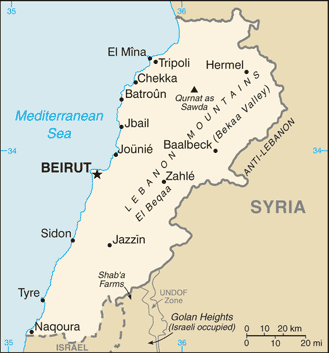Welcome to Enchanting Journeys
-
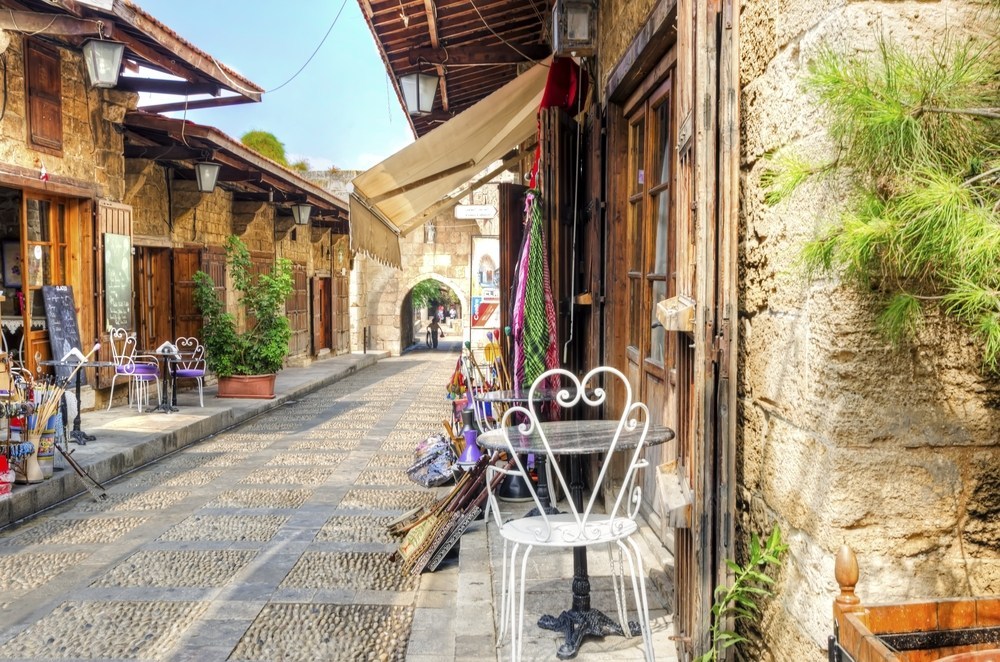 Lebanon
Lebanon
Coming soonFrom : $ Coming soonDiscover : -
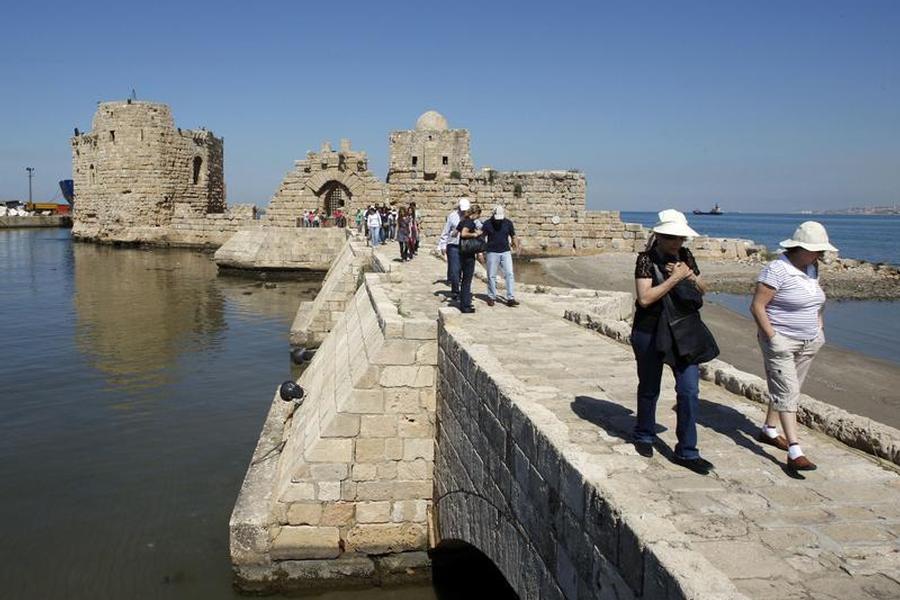 Lebanon
Lebanon
Coming soonFrom : $ Coming soonDiscover : -
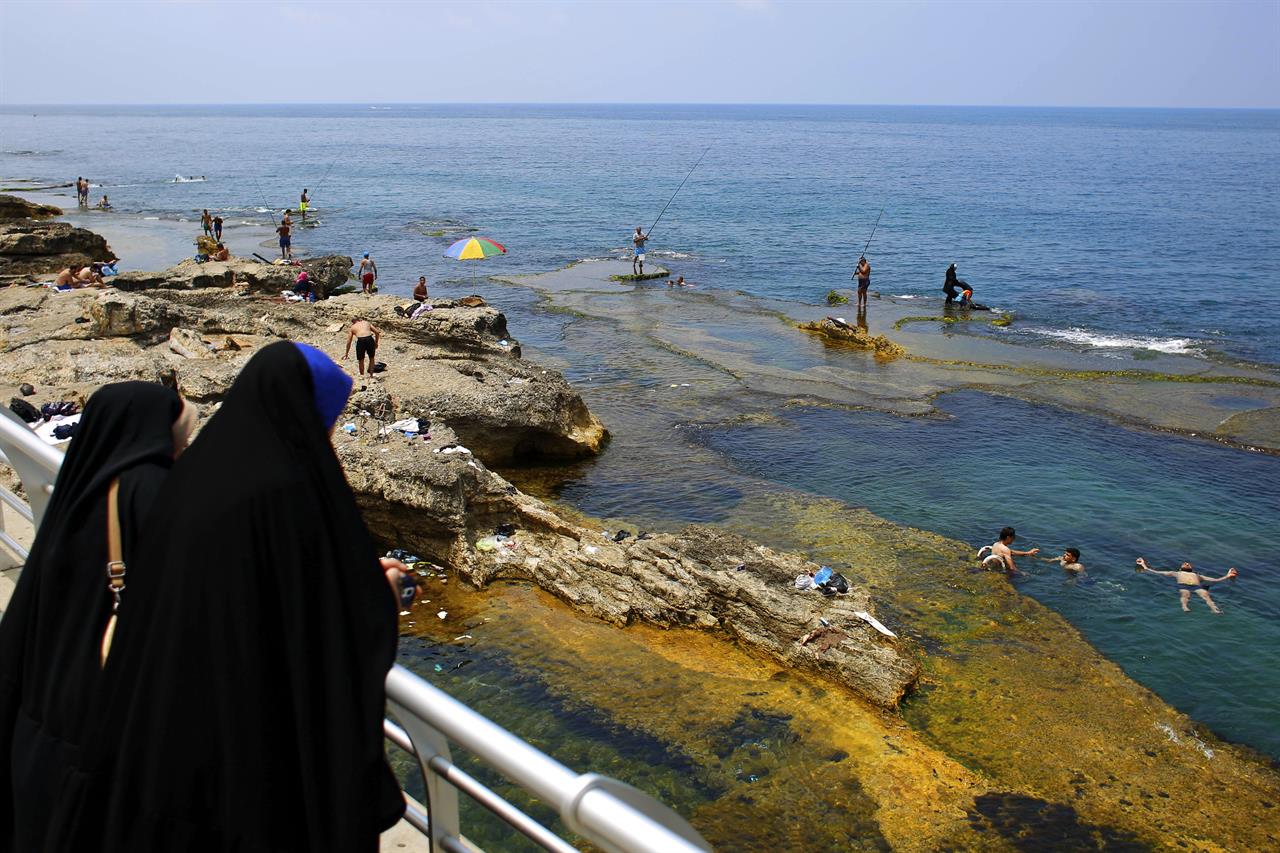 Lebanon
Lebanon
Coming soonFrom : $ Coming soonDiscover : -
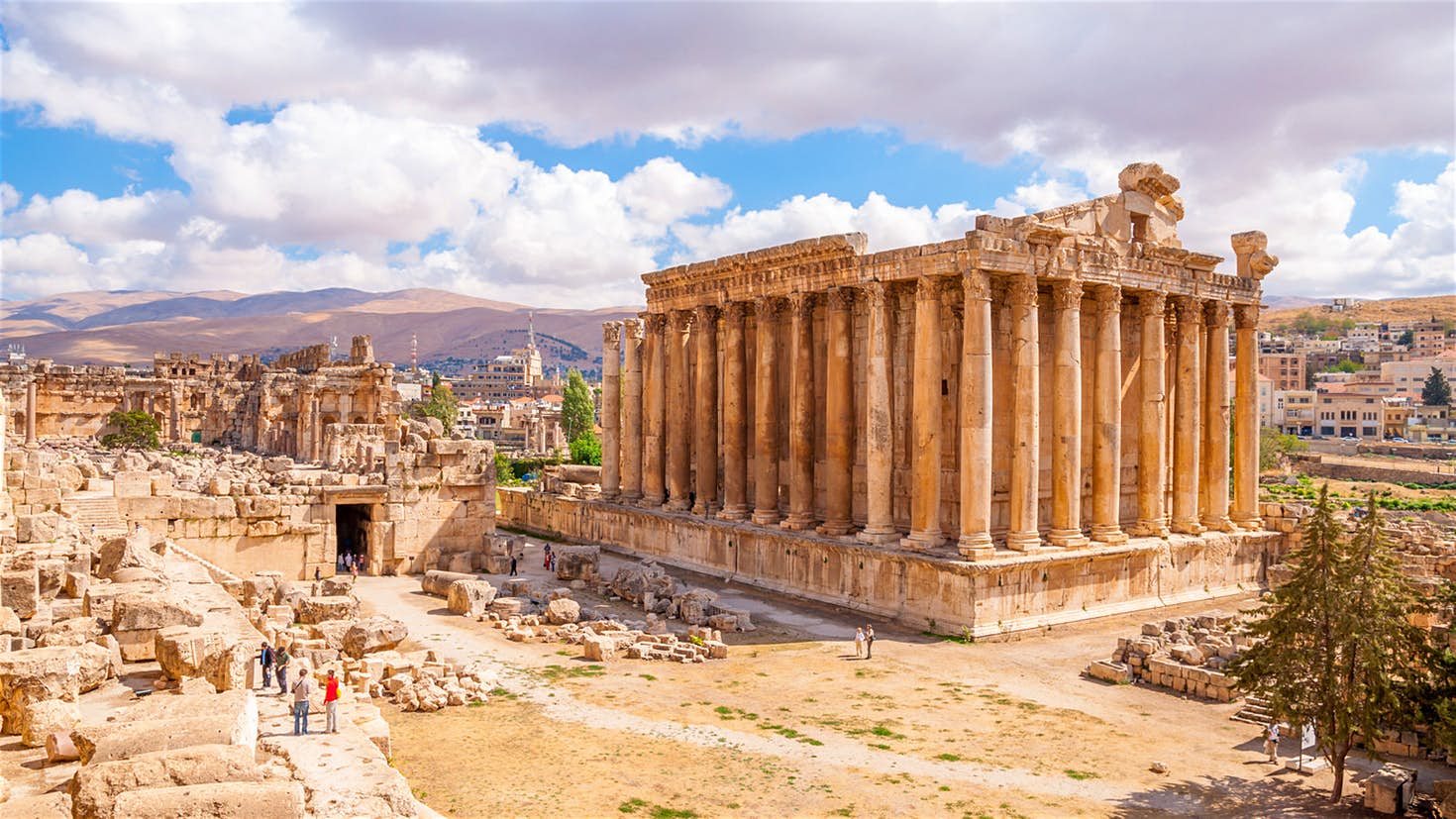 Lebanon
Lebanon
Coming soonFrom : $ Coming soonDiscover : -
5079.jpg) Lebanon
Lebanon
Coming soonFrom : $ Coming soonDiscover : - Lebanon
Coming soonFrom : $ Coming soonDiscover : -
3890.jpg) Lebanon
Lebanon
Coming soonFrom : $ Coming soonDiscover : -
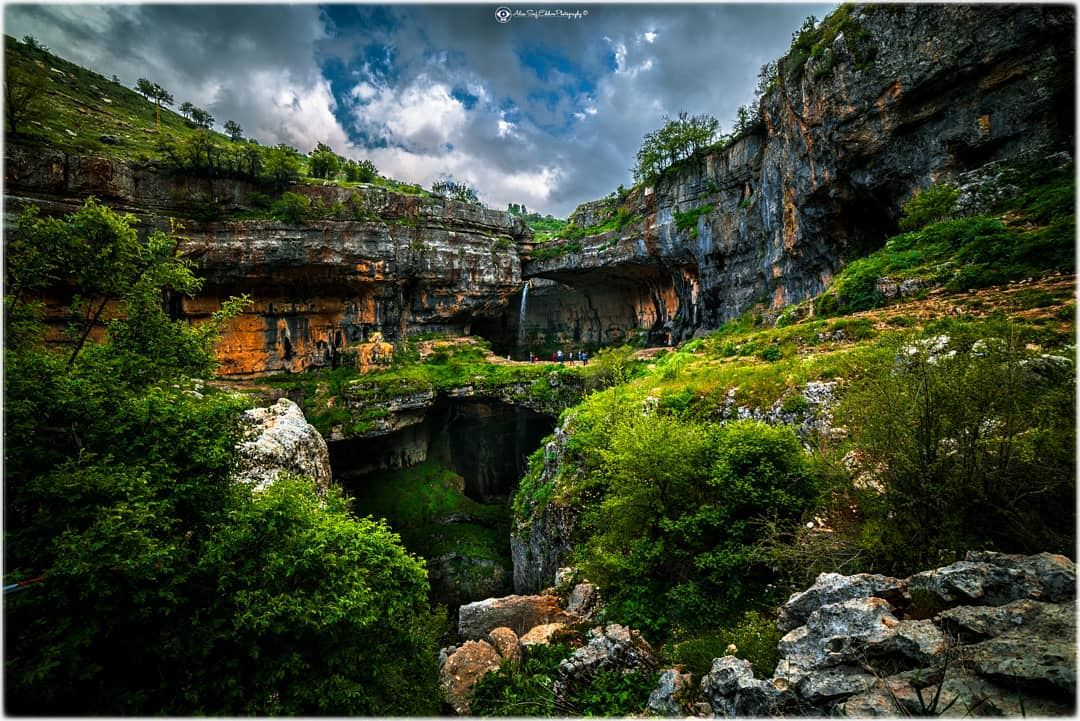 Lebanon
Lebanon
Coming soonFrom : $ Coming soonDiscover :

Thank you.
alttag
- Overview
- Itinerary
- Inclusion
- Hotels
- Rates
- Information

Mystical Lebanon...experience it now
Beirut & Beyond
Asia sticks to you. & the word is out: as far as off-the-beaten-path destinations go and if you fancy travelling somewhere neither East nor West, and exotic & fascinating yet perfectly comfortable then, Lebanon might just be a rewarding destination. And it is an incredibly varied & exciting vacation destination, pulsating with a spectacular mix of people, traditions & landscapes.
Your journey through this mind-stirring country will blaze in your memory long after you have left its shores. Come……experience Lebanon with us………
The Middle East is quite simply extraordinary, one of the world's most fascinating and rewarding travel destinations. It was here that some of the most significant civilisations of antiquity rose & fell and where the three great monotheistic religions - Judaism, Christianity & Islam - were born. Left behind is an astonishing open-air museum of ancient cities & historic buildings, the stones of which still resonate with the sounds of the faithful.
The Middle East is home to some of the world's most significant cities - Jerusalem, Cairo, Damascus, Teheran, Baghdad & Istanbul & Beirut. The ruins of the once similarly epic cities of history - Petra, Persepolis, Ephesus, Palmyra, Baalbek, Leptis Magna & the bounty of ancient Egypt, also mark the passage of centuries in a region where the ancient world lives & breathes.
The landscapes of the region are equally spellbinding, from the unrivalled seas of sand dunes & palm-fringed lakes in Libya’s Sahara desert to the stunning mountains of the north & the underwater world of the Red Sea.
Above all else, however, your most enduring memory of the Middle East is likely to be its people. Their gracious welcome, many kindnesses & boundless hospitality speak of an altogether more civilised age.
From the gravitas of the Sahara to the blue tiles of Esfahan, this is a region for discerning travellers, for those looking for the story behind the headline, and where the bridges between ancient & modern civilisations are evident everywhere. If you believe what the media tells you and decide not to visit, you would be missing out on the journey of a lifetime.
And now, let us talk about Lebanon & leave your preconceptions at home.
.
Ancient Civilisation | Beauty of Islam | Redefining Hospitality
Little understood & seldom visited by Western tourists, Lebanon can seem opaque & enigmatic. Many preconceptions are based on its confusion with the Arab world, a fact lost on many in the West. For a country its small size, Lebanon has a staggering number of diversions to keep visitors entertained. Ancient history enthusiasts will be exhausted by the end of their trip: you can barely turn around without stumbling over a world-class archaeological site.
This diminutive Mediterranean nation has 7,000 years of history. Home of one of the most ancient civilizations in the world, Phoenicia, Lebanon hides beneath its ground an ancient world that still needs to get discovered. Recently, National Geographic declared that Lebanon is one of the world's oldest countries, famous for its exquisite beauty, diversity, glamor, European flavor & hospitable people. Its rich culture & history have placed it on the “must see” list of every world traveler.
An ancient land, Lebanon features in the writings of Homer & in the Old Testament. Its cities were major outposts & seaports in Phoenician and Roman times, just two of the great civilizations that touched this important Middle Eastern crossroads.
Coolly combining the ancient with the ultramodern, Lebanon is one of the most captivating countries in the Middle East. Lebanon is blessed with magnificent mountain vistas, majestic ancient ruins & an indomitable, hospitable people. Lebanon rewards the traveller with food for thought and a feast for the senses & the stomach.
It is a fascinating nexus point of the Middle East & the West; of Christianity & Islam; of tradition & modernity. Lebanon is an ancient land that has been at the heart of the growth of two of the world’s major religions, For centuries, diverse religious traditions have shared this land, creating a rich mosaic of religious beliefs & a unique multicultural society. Many times throughout its history, Lebanon has served as a place of refuge & spiritual retreat, and the modern religious pilgrim will discover this same sense of sanctuary in the beauty of the country’s holy places & natural terrain.
With all of the Mid-east’s best bits - warm & welcoming people, mind-blowing history & considerable culture, Lebanon is also the antithesis of many people's imaginings of the Middle East: mostly mountainous with skiing to boot, it is also laid-back, liberal & fun. It is a place where culture, family & religion are all-important.
Because of its financial power & diversity in its heyday, Lebanon was referred to as the "Switzerland of the East" during the 1960s, and its capital, Beirut, attracted so many tourists that it was known as "the Paris of the Middle East", thanks to its French influences & vibrant cultural & intellectual life.
Lebanon's diverse patchwork of Mediterranean-lapped coast, rugged alpine peaks & green, fertile valleys, is packed into a parcel of land some 225 km long & 46 km wide.
The nature of Lebanon makes it the only country in the Arab world that embraces four seasons yearly. No matter what the season, there is always something special to enjoy. In the winter season, ski resorts offer tourists slopes that are comparable to even the best resorts in Europe.
Lebanese cities are among the most famous names in ancient history & majestic ruins still stand today as a testimony to the greatness of people who lived in this land
Tripoli is considered to have the best souk in the country and is famous for its Mamluk architecture. It is well equipped with a taste of modernity as well; Jounieh, formerly a sleepy fishing village, is a town alive with nightclubs & glitz on summer weekends.
Once known as the 'Paris of the East', Beirut commands a magnificent position, thrust into the Mediterranean. Behind the city are towering mountains, visible when the traffic haze settles down. The Corniche seafront boasts beaches, restaurants, theatres and a dazzling variety of shops & restaurants. It is fast becoming the region's party place.
The cosmopolitan flair of modern-day Beirut, the gastronomic renown of the country's food & wine, and an educated & outward-looking population complement a country that is both traditional & progressive in outlook. Middle East's most glamorous, hedonistic city is home to a glorious national cuisine & a string of sexy beach resorts.
Lovers of nightlife will find a gregarious capital with bacchanalian parties going to all hours. Those seeking serene nature can wander through ancient cedar forests & dramatic mountain-scapes.
Outside of the capital, several UNESCO World Heritage Sites await, many of which reflect the country's various ancient civilizations. Phoenician tombs, Roman temples, Crusader castles & Mamlouk mosques can be found in the cities & ruins of Baalbeck, Byblos & Tyre. The town of Aanjar in the Bekaa Valley contains an Umayyad site from the 8th century - a unique historical example of a commercial centre that was inland. Within the mountainous interior of the Kadisha Valley, ancient monasteries & churches can be seen, including a chapel built into the rock face.
As Lebanon is a relatively new country, there aren’t many traditions that the Lebanese can truly call their own. However, the locals have taken all the influences of other countries & developed a set of mannerisms only they will understand. Nothing beats trying to navigate the strange social customs that the people of Lebanon have. For all the flavors of its storied past & rugged natural beauty, Lebanon is a well-kept tourist secret that begs exploration.
Crafts in Lebanon are numerous & varied and can mostly be attributed to the patient work of craftsmen of the Lebanese mountains. Namely, blown glass, Phoenician Tyrian Purple fabrics, fine ceramics and the Arab’s magnificent jewelry, delicately embroidered textiles & garments woven with gold & silver threads. One can also mention the manufacture of the crusader’s bronze bells, 19th century cutlery & 20th century leather crafts.
Finally, Lebanon is the gourmet’s paradise, it’s cuisine is considered the richest of the region. Thanks to its marvelous Mediterranean climate, fresh fruits & vegetables abound here all year long. With varied & exotic food, the Lebanese cuisine, though often compared to that of other neighboring countries, has its own particular taste. From hummus to hommard (lobster), you will dine like a king.
On this ‘very’ short Stopover, discover a civilisation in a country where East-meets-West in the Middle East. Discover the modern vibrant Beirut proclaimed "Paris of the Middle East" as the walk in the footsteps of the Greeks & the Romans did, 7000 years back.
Arrive in vibrant Beirut - the capital & largest city of Lebanon was once the self-proclaimed "Paris of the Middle East", kind of where East-meets-West in the Middle East.
History, great food & idyllic scenery are just the beginning……. Take the plunge now & yep….Lebanon is waiting. With legendary sights, hospitality, food & nightlife, what more could a traveller want? A warm welcome, historical secrets & an artistic paradise awaits you & The Journeys is ready to take you on well, a journey (or journeys) of discover.
Come…be inspired & discover the World.....
|
Beirut & Beyond |
||
|
Day | Date |
City |
Transfers | Sightseeing |
|
Any Day |
|
|
|
01 | 00 | 0 |
Beirut |
✈ Arrival Transfer | Free (balance of the day) |
|
02 | 00 | 0 |
Beirut |
AM v PM Jeita Grottos + Lady of Lebanon + Byblos | Free (evening) |
|
03 | 00 | 0 |
Beirut |
AM v PM Beirut + Baalbek + Ksara Winery | Free (evening) |
|
04 | 00 | 0 |
Beirut |
Departure Transfer ✈ |
|
|
||
|
|
|
|

Mystical Lebanon... prepare to be charmed
Beirut & Beyond
Beirut * Harissa * Byblos * Baalbek * Ksara * Beirut
Day 01 - | ✈ Arrive Beirut at ???
Middle East is a grand epic, a cradle of civilisations and a beautiful, complicated land that's home to some of the planet's most hospitable people.
Welcome to mystical Lebanon the diminutive Mediterranean nation, a fascinating nexus point of many civilizations, whose traces may still be seen today, & the West; of Christianity & Islam; of tradition & modernity. Prepare to fall in love.
Arrive in vibrant Beirut - the capital & largest city of Lebanon was once the self-proclaimed "Paris of the Middle East", kind of where East-meets-West in the Middle East.
After you exit in the Arrival Hall at Terminal? - Beirut Rafic Hariri International Airport, subsequent to Immigration & Customs, you will be welcomed by The Journeys representative who will ensure your comfort & transfer you to the hotel. He / she will provide assistance during Check-in & will discuss the program for the next couple of days & offer tips in case you want to explore independently during your leisure time.
If, for any reason you are unable to make contact with our representative within 30 minutes of waiting, please call the local Emergency telephone # listed on your Contact List. Please follow the advice given by our 24 / 7 Duty Officer. Please do not exit the Airport & make your own way to the hotel.
Reach the hotel & Check-in.
*Check-in time is 02.00 pm. For earlier arrivals in the morning, we will request the hotel for a complimentary early Check-in but cannot be guaranteed unless reserved & paid for ‘immediate occupancy’.
Balance of the day is at leisure to relax or independent exploration or optional activities (We shall be happy to offer suggestions & make arrangements).
Beirut is the perfect destination for seasoned travellers: here, East and West intertwine in intricate ways, creating a city so magnetic that few are able to resist its powerful draw. Much has changed over the latter half of the 20th century - Beirut rising to become glitterati central in the 60s but falling from grace during the bloody Civil War – but the city is alive and kicking, enticing travellers with superb gastronomy, the Middle East's most vibrant nightlife & a close proximity to the ancient towns of Byblos & Baalbek.
Fast-paced, fashion-conscious & overwhelmingly friendly, it is not a relaxing city to spend time in – it is too crowded, polluted & chaotic for that - but its energy, soul, diversity & intoxicating atmosphere make it a vital, addictive city.
Beirut was seen as the "European gateway to the Middle East" & vice versa & was often called the "Paris of the Middle East"..
The city is on a relatively small headland jutting into the east Mediterranean. Due to Lebanon's small size, the capital has always held the status as the only true cosmopolitan city in the country & ever since Independence, has been the commercial, financial & tourist hub of the Middle East. It was a top destination among wealthy Arabs & European tourists, due to Beirut's unique geography, climate, diverse culture & freedom.
Since the end of the war in 1989, Beirut has undertaken an aggressive rebuilding policy & has been working hard to regain its status as the cultural & intellectual center in the Middle East which it has lost to Cairo as well as a center for commerce, fashion & media which is now dominated by Dubai,
Beirut has survived a rough history, falling under the occupation of one empire after another. Originally named Berut - "The Wells" by the Phoenicians, Beirut's history goes back more than 5000 - 7000 years. Excavations in the downtown area have unearthed layers of Phoenician, Hellenistic, Roman, Arab & Ottoman civilizations. Following World War II, Lebanon gained its independence from France & Beirut became its capital in 1943.
Most areas of Beirut have a friendly atmosphere & Beirutis have a reputation for being very polite, friendly, sociable & outgoing. The locals are used to the sight of foreigners & many of them are happy to get to know you & even to show you around the city. Many Beirutis (as well as other Lebanese) speak French & / or English, to varying degrees, along with Arabic.
It still has an outdoor cafe culture & the city offers some of the best night life in the whole region. Going out at night is a smart affair, so dress fashionably to fit in, although this does not mean dressing up in a suit; you will find many men in sporty t-shirts, dark jeans & smart running shoes at even the trendiest nightclubs. Many live concerts are held throughout the year with international musicians & DJ's & Beirut has hosted some of the world’s biggest names in Dance music.
European architecture can be found everywhere & each district has its own sights & places to visit. A couple of excellent museums are the key sights, but exploring the character of the different districts, strolling the waterfront & diving into the city's wonderful restaurant & nightlife scene are major attractions.
As Lebanon is so small & day trips easy, some travellers stay here for their entire visit. Visit the national heritage sites around Lebanon; every city in the country has at least some form of ancient or historic site.
Once you leave Beirut, visit any of the other cities in Lebanon. Depending on the season visiting, you can go skiing in one the six mountain resorts, or go to the beaches in Tyr or one of the beach resorts in Jounieh.
Lebanon is famous for its food & in spite of the increasing influence of Western & other cuisine, there is an appreciation of farm work & Lebanese cultural food heritage. Lebanese cuisine is a mix of Arab, Turkish & Mediterranean influences, and enjoys a worldwide reputation for its richness & variety as well as its Mediterranean health factor. Lebanon is a great country to eat vegan since many dishes, especially those part of Mezze, are traditionally made without animal ingredients. Not to speak about the delicious fresh fruit & veg. Some of the sweets are also vegan, depending on the confectioner.
Lebanon is well known for being a vacation destination for the people of the Persian Gulf, many of whom wear the traditional hijab. However, many Lebanese are rather liberal in comparison to the people of Lebanon's neighboring countries - short skirts, high heels & bikinis are a regular sight.
Overnight.
Day 02 - | Beirut vJeita vHarissavByblos vBeirut Drive: 42 km x 2
After an early breakfast, meet the Tour-guide & embark on a full day excursion to see the beautiful natural wonder situated in the Nahr al-Kalb valley within the locality of Jeita, - the Jeita Grottoes - a system of 2 separate, but interconnected, karstic limestone caves spanning an overall length of nearly 9 kilometres.
One of the world’s most amazing agglomerations of stalactites & stalagmites, Jeita Grotto is widely considered to be the pride of Lebanon & was featured as a finalist in the New 7 Wonders of Nature competition.
The Caves were inhabited by prehistoric man, with evidence suggesting that they were previously used to produce swords. Reverend William Thompson, an American missionary, is credited with the modern discovery of the caves in 1836.
To reach the Caverns, you will board a cable car & enjoy a scenic ride on the charming Ropeway enabling you to savor the panoramic view of the surrounding abundant nature!
There are 2 viewing galleries. The lower ones are accessed by a boat, while the upper caverns can be reached on foot. A short dreamy boat ride over a distance of some 400m from the cave’s will captivate the visitor carrying him to another world full of peace and haunting splendor. Then, a walk of some 700m will stun the visitor with the spectacular beauty of the extraordinary amazing limestone formations.
Placed at the entrance of the lower grotto, you will see one of the most enormous (with a height of 6.6.m & weighting 65 tons) & attractive statue found in Lebanon called “Guardian of time”. There is also a lovely comfortable toy train shuttling up & down the upper & lower grottoes.
Enjoying the refreshingly cool temperature, the sound of rushing water, columns & sculptures that have been formed by water and time, supported by an effective lighting system, allowing to glimpse the uppermost roofs.
To complete the touristic experience of Jeita Grotto, a restaurant & a snack shop offers delicious Lebanese traditional cuisine & beverages.
Then, drive on to Harissa Mountains, overlooking the Bay of Jounieh. Many Lebanese make frequent pilgrimages to Harissa which gives them a good perspective of Lebanese heritage & culture.
On the 600 meter Harissa hilltop stands a painted bronze statue of the Virgin Mary with her hands outstretched toward the city.
The shrine to Our Lady of Lebanon (Notre Dame du Liban), the nation’s patron saint, was erected in 1908 & has become one of the world’s most important shrines to the Virgin Mary that attracts millions of pilgrims & visitors each year. It is also occasionally known as Our Lady of Harissa & can be compared to Rio de Janeiro’s Christ the Redeemer statue.
Getting to the base of the white statue requires 10 minute ride up the hillside from Jounieh aboard a teleferique (cable car). The breathtaking views of Beirut & the sea beyond from Harissa’s base are worth the ride in their own right.
Spend an hour here before hopping in the vehicle again moving on to the next to the most famous site in Lebanon.
Drive on to UNESCO World Heritage Site of Byblos, the oldest town in the world continuously inhabited for 5,000 years.
Byblos (Jbail in Arabic) is a pretty fishing port with an ancient Phoenician harbour, medieval town centre, Crusader-era Byblos Castle & atmospheric archaeological site on the Mediterranean coast of what is, today, Lebanon. The rise & fall of nearly 2 dozen successive levels of human culture on this site makes it one of the richest archeological areas in the country.
According to Phoenician tradition it was founded by the God El & even the Phoenicians considered it a city of great antiquity. Although its beginnings are lost in time, modern scholars say Byblos is believed to have been first occupied between 8800 & 7000 BC and continuously inhabited since 5000 BC, making it one of the oldest continuously inhabited cities in the world.
The area now known as Lebanon first appeared in recorded history around 3000 B.C. as a group of coastal cities & a heavily forested hinterland, inhabited by the Canaanites, a Semitic people, whom the Greeks called "Phoenicians" because of the purple (phoinikies) dye they sold.
The seaside, good accommodation & eating options and a lively party scene in the old Souq makes it a likeably hedonistic & very popular place that packs out in summer.
Spend a couple of hours, walking around the city to see the Citadel, St Jean Marc Church & the old port. Depending on the available time, you stroll through the old Souq & check out the Byblos Fossils Museum.
In time, depart for Beirut.
Reach the hotel by evening.
Balance of the evening is at leisure. There are many optional activities if you want to go out (we will be happy to offer suggestions & make arrangements).
Overnight. B
Day 03 - | Beirut v Baalbekv Ksara v Beirut Drive: 67 km x 2
Beirut is a hub of culture & history. The city has survived the ravages of time & war, but there is still much to see. Be enchanted by the capital of modern Lebanon, the country’s cultural & commercial center.
Morning, meet the Tour-guide at 08.00 am & proceed for a 4 hour sightseeing tour of Beirut.
See ‘some’ of the city’s top attractions while discovering how Beirut was built on a rocky headland and its rise & fall over the centuries.
Start at the Corniche, the wide seaside promenade in Avenue des Français which was built during the period of the French Mandate of Syria & Lebanon. Lined with palm trees whose trunks are pockmarked with bullet holes from the Lebanese Civil War, the Waterfront has views of the Mediterranean & the summits of Mount Lebanon to the east. The Corniche is a popular destination for walkers, joggers & bikers. Push cart vendors offer various local snacks & drinks.
South of the Corniche is the historical Raouche, a residential & commercial neighborhood known for its upscale apartment buildings, numerous restaurants & cliff-side cafes that line Avenue de Paris.
Off the coast of Raouche, there are 2 huge 60 meter high natural rock formations called the Pigeons' Rock which stand like gigantic sentinels. These impressive limestone outcrops were formed after a very big earthquake that hit the area in the 13th century. Raouche also is claimed to be the remains of a sea monster the Greek hero Perseus killed to save Andromeda. Perseus used Medusa’s head on the monster to turn it into stone.
A prime selfie territory & a Beirut landmark, it is considered a Lebanese natural treasure. This is a very romantic spot, especially during sunset. A couple of cafes here offer decent spots to sit & admire the view with a shisha or beer.
Walk through the city center Nejmeh Square where you will see one of the largest reconstruction projects in the world, to an important landmark in Lebanese history, the Martyrs’ Square - dedicated to those who were executed during Ottoman rule. It is also the traditional dividing line between East & West Beirut. First constructed in 1931, the monument has remained relevant due to the repeated political assassinations in Lebanon’s recent past.
Next stop will be the National Museum of Beirut is the principal museum of archaeology in Lebanon. The collection begun after World War I & the Museum was officially opened in 1942.
The collections total about 100,000 objects, most of which are antiquities & medieval finds from excavations undertaken by the Directorate General of Antiquities. About 1300 artifacts are exhibited, ranging in date from prehistoric times to the medieval Mamluk period. During the 1975 Lebanese Civil War, the Museum stood on the front line that separated the warring factions.
The Museum's Egyptian Revival building & its collection suffered extensive damage in the war, but most of the artifacts were saved by last-minute pre-emptive measures. Today, after a major renovation, the National Museum has regained its former position, especially as a leading collector for ancient Phoenician objects.
And now, you will hop on the vehicle & drive east of the Litani River in Beqaa Valley to reach the world’s greatest historical sites, the ruins of Baalbek, Lebanon’s greatest Roman treasure, counted among the wonders of the ancient world.
Step back to the time of 15 BC, when Beirut was a significant port & cultural center.
Known as the Heliopolis or ‘Sun City’ during the ancient Greek & Roman times, Baalbek’s incredible ruins comprise the most impressive ancient site on a hill in the Bekaa valley in modern day Lebanon & are arguably the best preserved in the Middle East.
Baalbek temple is known to the world as a monumental 2 thousand-year old temple to Jupiter that sits atop 3 thousand ton stone blocks. But is there more to this ancient shrine that meets the eye? What if it has a completely unexpected origin?
The extravagant temples here have enjoyed a stellar reputation throughout the centuries, yet still manage to maintain the appealing air of an undiscovered wonder because of their semi-rural setting. The ruins stand tall as an archaeological wonder with towering monuments & impressive columns.
The construction of the expansive temples was begun by the Phoenicians between three & four thousand years ago. The Greeks then added to it, followed by the Romans & much later the Arabs. Local legend has it that the temple was originally built by people “from the East”.
As early as 9000 BC, Baalbek was a center for Mesopotamian, Roman, Christian & Islamic worship & became a cornerstone of ancient civilizations as each Group introduced their own heritage to this sacred monument.
Up until 150 BC, the site was a temple dedicated to the Phoenician Astarte & Baal. It is not hard to imagine that the wreaths & sacrifices carried out for Astarte the goddess of fertility & war were then shifted to Venus during the Roman colonization.
Subsequently, the temples were brought into the Christian era with Constantine the Great’s influence on the Roman Empire. That is up until 637 AD when Islamic rule led to the use of the site as a reinforced fortress & a Mosque was added.
The decline of these ruins began when the temple passed to the Ottoman Empire when it was abandoned & left in ruins. In addition, earthquakes, storms & natural forces continued to tear the site apart until 1898. That year, German Emperor Wilhelm II visited the Temples & pioneered the attempt of restoring & preserving Baalbek.
In terms of architecture the greatest temples at the site are the Temples of Jupiter, Bacchus & Venus. The sheer magnitude of these have created something of a puzzle for archaeologists as they continuously theorize as to how rocks of this grandeur & size could have been carved & assembled. For example, the temple of Jupiter is surrounded by 54 columns which stand at nearly 23 meters high & are considered some of the largest in the world. The Temple of Bacchus stands out from the rest as it is so well preserved & is adorned with beautiful carvings that date back to the Roman Empire.
Today, the ruins of Baalbek still stand as one of Lebanon’s most prized historical treasures. The place is always alive with music festivals & folklore-related activities. Tourists & locals alike flock here to see the picturesque sunset behind those ancient columns. Walking through this sacred site, one can’t help but picture all the different peoples who have worshiped here at the alters of their Gods.
After spending 2 hours marveling at the well preserved ruins, you will visit Lebanon’s oldest Winery - Chateau Ksara.
In 1857, Jesuit monks inherited & began farming a 25 hectare plot of land. Resident priest Father Kirn recognized the potential of Ksara’s terroir & convinced the other priests that it should be used to grow grapes for viticulture. It was Kirn & his fellow Monks who applied their agricultural knowledge & set out to produce Lebanon’s “first dry wine,” & with that, lay the foundation of Lebanon’s modern wine industry.
A grotto dating back to the Roman era was unearthed. Until then, good cellars had been hard to come by. When it became apparent that the caves were ideal for keeping wine at the correct temperature, the priests celebrated their good fortune. Chateau Ksara’s 2 kilometers of caves have played a central role in the success of the Winery as they maintain a constant temperature & hygrometry throughout the year, providing the ideal conditions for the ageing of wines.
The Middle East’s first Observatory was established at Ksara so that the Monks could record rainfall & seismic activity. The building was to become a strategic Bekaa landmark in times of both peace & war.
In 1973, the Vatican encouraged its Monasteries & missions around the world to sell off any commercial assets. By then, Chateau Ksara was producing 1.5 million bottles annually. But the Monks’ success was now deemed to be at odds with their religious merit & subsequently, Chateau Ksara was sold to a consortium of local businessmen.
In 1991, Chateau Ksara planted noble grapes, namely Cabernet Sauvignon, Syrah, Sauvignon Blanc, Semillon, Chardonnay & Merlot. No one – at least the local farmers - believed these grapes would survive in Bekaa’s relatively untested terroir, unaware that they would in fact grow & thrive to their fullest potential.
The Winery celebrated its 150th anniversary in 2007 just as it begun a significant expansion program. To mark the occasion, the Estate created & released its most refined bottle of wine to date: Le Souverain.
From its founding in 1857, Chateau Ksara Estate lives & grows through the core values of Tradition, Nobility & Modernity, as the country’s oldest winery & continues their unique, centuries-old practice of winemaking. They also implement the modern innovative processes & continue leading the winemaking in Lebanon for generations to come.
Enjoy a tour of the Vineyards & participate in a Tasting session (Tasting - not included – direct payment).
Return to Beirut by evening.
Balance of the evening is at leisure. There are many optional activities if you want to go out (we will be happy to offer suggestions & make arrangements).
Overnight. B
Day 04 - | Depart ✈Beirut at ????
Alas, like all good things, the wonderful experience comes to an end. Time to say good-bye to enchanting Canaan & go home. But, we sure hope that you may want to discover a bit more of this mystical country which boasts a recorded 7,000 years of ‘Biblical’ history, on your next visit.
Check-out of the hotel by 12:00 noon (if the departure time is later in the evening, we will request the hotel to allow the usage of the hotel facilities & to leave the luggage at the Bell Desk).
In time, you will be met by a Journeys Rep, who will ensure your comfort & transfer you to Terminal? - Terminal? - Beirut Rafic Hariri International Airport for your onward journey. B
*** End of Services ***

Mystical Lebanon... prepare to be charmed
Beirut & Beyond
- Transfers to / from Hotel / Airport & City Tours / Excursions by private A/c vehicle*
- Services of a Journeys Rep for assistance on all Arrival / Departure Transfers
- Porterage at Airport / Hotels
- Accommodation for a total of 3 nights in the selected Hotels
- Meals as per itinerary (B=Breakfast, L=Lunch & D=Dinner)
- Services of English speaking local Guides for all Sightseeing Tours / Excursions as per Itinerary*
- Entrance Fees at the Monuments, wherever applicable
- Rechargeable SIM Card (Data & Voice) to enable a 24 / 7 connection with family
- All Government Taxes & Service Fees, wherever applicable
- 24 / 7 Emergency Contact
- Bottled Water during Tours / Drives
- Farewell Gift
- International flights
- Visa or Visa Fee for Lebanon (Canadian & US citizens can obtain the Visa on arrival)
- Airport Tax payable on final departure, if any
- Camera / Video Fees, wherever applicable, at the Monuments
- Items of personal nature i.e. Room Service, Laundry, Telephone Calls, Internet, Fax, Beverages, Medical or Evacuation Expenses, Insurance, Gratuities & Tips
- Any Meals not specifically listed in the itinerary
- Any optional Programs / Services
- Any items not specified under Inclusions
* Guaranteed departures with minimum 2 guests. Seat in Coach. There may be other participants & group size may vary. Participants may come from all over the world & most of them will be English speaking. Private Tour with English speaking Guide & vehicle can be arranged.
** Please note that the Program highlights the main attractions that are to be visited each day. The sightseeing tours combine ‘walking’ & driving. Some Monuments / places may require extra Entrance Fees to be paid for accessing some of the areas.
*** It is extremely rare that Programs need to be changed but it can occur. We reserve the right to change, amend or alter the Itinerary if required, for example, occasionally the tour sequence & duration of time spent in each place / city can change due to local conditions which are out of our control or due to heavy traffic conditions or bad weather. The Price will not be affected.
Conditions related to specific Tours will be advised in due course, if required.

Mystical Lebanon... prepare to be charmed
Beirut & Beyond
Where you will stay:
|
Beirut & Beyond |
||||
|
City |
Nights |
Superior *** |
First Class **** |
Deluxe***** |
|
Beirut |
3 |
Mozart |
4 Points by Sheraton |
Radissun Blu Martinez |
|
|
||||
|
|
3 |
|
|
|
The Journeys has carefully selected each hotel based on overall quality, location, price, food, service, and cleanliness. All rooms are standard rooms with two beds and private facilities, unless you have specifically requested and paid for an upgrade. Room selection is strictly at the discretion of the hotel management. We reserve the right to make hotel substitutions with those of equal standard due to non-availability of the selected hotels.
Check-in time is usually 2:00 pm or later. Check-out time is 12:00 noon. If you will be arriving early in the day or departing in the evening, hotels will usually allow you to store your luggage in their luggage room. We will ask at the front desk on your behalf, if the hotel can check you in earlier, or let you stay later.

Mystical Lebanon... prepare to be charmed
Beirut & Beyond
And last but not least:
Departure:
Arrival in Beirut on Any Day (minimum 2 guests)
Validity:
→ December 2021
Prices:
We offer several accommodation choices for this tour. The price varies by selected accommodations. The itinerary remains unchanged.
Exchange rates fluctuate with great frequency. Please contact us for current Pricing & we will respond
within 24 hours.
|
Beirut & Beyond |
|||
|
Price Per Person - C$ |
Superior *** |
First Class **** |
Deluxe ***** |
|
Occupancy - Double |
On request |
On request |
On request |
|
Single |
On request |
On request |
On request |
|
Triple |
On request |
On request |
On request |
|
|
|||
|
Airfare - International |
On request |
On request |
On request |
|
|
|||
|
Miscellenous |
If required |
If required |
If required |
|
|
|||
|
|
|
|
|
|
|
.
Some important notes
- Flights are subject to constant modifications / delays and cancellations. In such cases, we will do all possible to find the best available alternative / solution but will not accept any liability, whatsoever.
- Our rates only include those items which are specified in the Itinerary / Inclusions.
- The cost has been calculated on the existing tariffs / conditions and in case of any currency fluctuations or amendment in local Government taxes, or any fuel hike, we reserve the right to revise the tour price accordingly.
- Our quotations are calculated on base category of accommodation at each property and are subject to modification, if the same hotel / category of room not available at the time of reservation. In that case, we will confirm a superior category of room at a comparable or better hotel and supplement charges, if any, shall be advised accordingly. Final Itinerary will illustrate updated information and / or it would be furnished at the time of confirmation.
- All prices are per person, based on double occupancy, and subject to availability at the time of booking. The from price reflects the lowest available price at time of publication, which is valid for a specific start date or dates and also based on availability at the time of booking.
- Room availability is getting saturated due to heavy demands from the tourism industry, international Fairs and Congresses. Due to these constant sold- out situations the hotels are applying the cancellation rules more stringently. Once the reservation is guaranteed, the booking will be subject to full cancellation charges as per our Terms & Conditions (details will be advised at the time of deposit). We strongly recommend obtaining Insurance to protect yourself against any unforeseen scenarios.
- Additional services including Optionals, if any, can be paid directly by the clients to our local offices.


